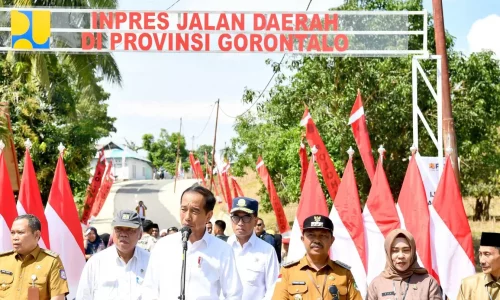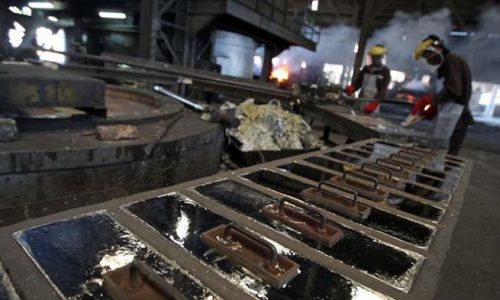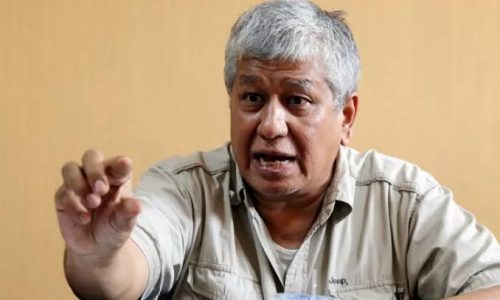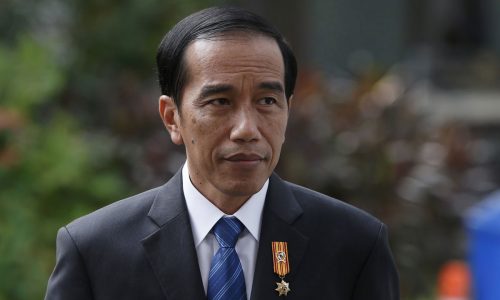There is growing concern among Indonesians that the country would fall into the Chinese debt trap in the construction of the Jakarta-Bandung high-speed train because of the increasing costs overruns especially due to the operational delay.
Bhima Yudhistira Adhinegara, Director of the Centre of Economic and Law Studies (CELIOS), believes that a long period for the return of investment coupled with the potential budget deficit resulting from the operation of the high-speed train will force Indonesia to pay the debt with the taxpayer’s money and the state-owned enterprises (BUMN) assets.
“It is challenging for the consortium of the high-speed rail project to pay its debts by simply selling tickets,” he said, adding that if the ticket is too expensive, only the upper middle class could afford it. There will be a high price because of the substantial construction and operational costs.
Indonesia-China consortium project financed by China Development Bank
In September 2015, Indonesia approved China’s proposal for the construction of a high-speed train project from Jakarta to Bandung, with an early investment plan of US$6.071 billion. The railway track is 142.3 kilometers long.
PT Kereta Api Indonesia China (KCIC) is the entity responsible for the construction of the Jakarta-Bandung high-speed rail project. The company is a combination of the Indonesian consortium, PT Pilar Sinergi BUMN Indonesia (60% shares), and the Chinese consortium, Beijing Yawan HSR Co Ltd (40% shares). The Indonesian consortium consists of four state-owned companies. State-owned construction firm PT Wijaya Karya Tbk is the largest shareholder at 38%, followed by PT Perkebunan Nusantara VIII and PT Kereta Api Indonesia (KAI) 25% each of the shares and toll road operator PT Jasa Marga at 12%.
Approximately 75% of the project’s financing will be provided by the China Development Bank loan and 25% of the cost will be provided by the consortium of Indonesian and Chinese state-owned enterprises equity.
The Indonesian government will inject capital from the state budget as a funding source, through the state railway company PT Kereta Api Indonesia (KAI).
China’s debt trap in other countries
In September 2021, a cost overrun of US$1.7 billion to US$2.1 billion was made by the consortium midway through the project. As Adhinegara pointed out, the ballooning cost overruns were attributed to a flawed feasibility study by the government, that did not calculate the price for land clearance during the feasibility study, which represents 40% of the total construction costs.
By relying solely on the operations of the high-speed train to generate income, economist Faisal Basri of the University of Indonesia (UI) said it would be almost impossible for Indonesia to have a return on investment “until the end of time”.
“If the consortium of state-owned enterprises could not settle the debt, Indonesia would allocate its state budget to pay the deficit. In the absence of sufficient funding to pay off the debts, Indonesia will fall into the China debt trap,” Basri said. He added that if Indonesian could not pay off its debts, China would take over other projects such as Indonesian tin reserves and the gold Wabu block.
“It happened in Sri Lanka, they were unable to pay off its debt attached to a port project, so China took it over,” he said.
According to Nikolaus Loy, a lecturer at the School of International Relations at the UPN Veteran University in Yogyakarta, Indonesia should be careful with Chinese help with development and technical assistance.
In the cases of several African countries, the government had to pay back the debt through compensations such as access to oil and gas and mineral resources, because they failed to pay the debts to China. “There is a country so indebted that China has taken over its airport. This is because the country cannot pay the debt to build the airport,” he said.
According to Adhinegara, the Indonesian government might learn a lesson from Malaysia, which cancelled its Malaysia-Singapore railway project. The government of Malaysia realized that the country was stuck in a debt trap and halted the project.
The main issue is that the operational costs could be much higher if the government did not stop the project now.
Silk and Belt Road project to revitalize past Chinese influence in the region
There are simple conditions to access Chinese debt. Unlike Europeans and Americans, Chinese lenders do not impose complicated human rights, environmental protection and child labor conditions.
From a political economy perspective, debt to China through the Silk and Belt Road project should be seen to revitalize past Chinese influence in the region. With China’s economy interconnected to the regional economy and the economies of faraway countries, China is in control of the market and economic development in the region.
Basri argued that China had to export domestic products through Belt and Road Projects due to its industry’s oversupply and excess capacity. This includes infrastructure development. It is one of the ways that China is trying to increase its global economic influence. Furthermore, China requires its low-skilled workers to work on its overseas projects.










